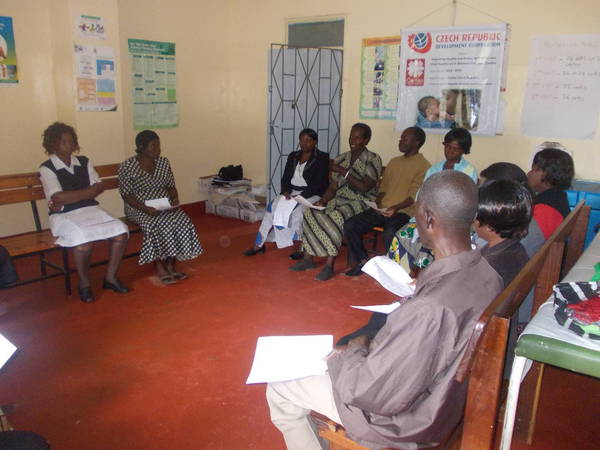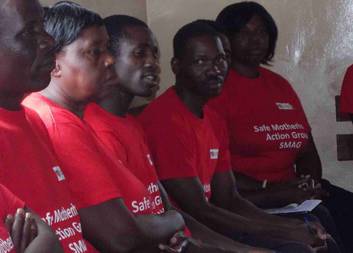On November 25th to the 29th, 2013, the training of ten local health volunteers associated with the Action Group for Safe Motherhood (SMAG - Safe Motherhood Action Group), which operates at a medical centre in Sefula, was held.
SMAG volunteers working in rural areas were informed about the availability of health care in rural clinics, the benefits of doctor visits during pregnancy, and the postpartum period. Awareness is not only focused on mothers and pregnant women, but also men, who have the last word in the family and concerning matters relating to the health of woman and child in Zambian culture.
Caritas CR organized the training. During training, SMAG volunteers learned about the necessity and judgments concerning good maternal health care. They learned about the danger signs during pregnancy, planning a safe pregnancy and childbirth, about local systems used to improve access to care, about the immediate neonatal care, and about the postnatal care for mother and child. The trainer was Mrs. Florence Singer, a midwife from the health centre in Mulambwa.
The training was carried out through interviews and discussions. Participants passed on the important key points in the form of traditional songs that the group SMAG used in their own educational activities. For example, volunteers in one song demonstrated various health problems of pregnant women to serve as warning signs of an immediate search for specialized health care. In another one, they imitated the problems of young children to help mothers know when it is crucial not to delay a visit to the health centre. Songs and dances are close to African culture and are used to easily transfer and memorize important information to help improve access to specialized medical care.
 As part of the training they also trained two nurses from the Health Centre in Sefula to ensure cooperation with professional health workers in the city. Trainers also pay close attention to informing the participants about the methods and techniques of raising awareness among local residents concerning the proper planning of activities and the preparation of reports. The aim was to guarantee that volunteers would be able to work independently after the project.
As part of the training they also trained two nurses from the Health Centre in Sefula to ensure cooperation with professional health workers in the city. Trainers also pay close attention to informing the participants about the methods and techniques of raising awareness among local residents concerning the proper planning of activities and the preparation of reports. The aim was to guarantee that volunteers would be able to work independently after the project.
The chairwoman of SMAG, Mrs. Bridget Tembo, at the conclusion of the training said: "Until now we could not really teach local people and advise mothers because we did not know much and we were not well organized. Without any support, we were able to move only in the immediate area around the medical centre Sefula. Now we know how to organize work and how to transfer important information to communities in remote areas. We were like abandoned children. Now, we found Caritas CR like parents who raised us from the ground, and taught us to walk."
In addition, Caritas CR gave shirts to volunteers from SMAG for the completion of training, in order to be easily recognizable. Furthermore, they were given traditional chitenge wrap materials, bags to transmit the necessary information, and a bullhorn to facilitate the convening communities.
Project funded by the Czech Development Agency is continuing in 2014.







